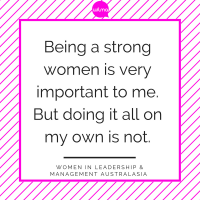A 2009 survey by French fund association AFG found that equity funds managed by women had produced more consistent results than those managed by males over a one, three and five-year period.
The same year, according to the Financial Times, a poll by Ignites Europe found the majority of asset management professionals believe women make better fund managers, partly because women tend to be more risk averse and less impulsive.
If producing decent returns sometimes comes down to avoiding companies that blow themselves up, conservatism has a distinct advantage.
“Independent research suggests that female investors are less likely to over-trade due to overconfidence, reducing transaction-associated costs,” says Jacqui Fernley, who has just established Arete Investment Partners with Kelli Meagher. “Other research suggests that the sections of the brain thought to be central in decision making, impulse control and emotions are larger in the female brain, which makes them well suited to occupations where risk analysis plays an important role.”
So where are all the women fund managers in Australia? A couple of months ago your correspondent embarked on an exercise to try to identify a group of young fund managers who were likely to become the star stockpickers of tomorrow. She soon discovered that there was a dearth of women under the age of 40 actually running portfolios.
One of them, Natalie Tam, a senior investment manager at Aberdeen Asset Management in Sydney, is optimistic about women’s prospects in the male-dominated industry. “Times are changing. There is a broad acceptance that women bring something new to the table,” she says.
But if change is coming, it is slow. The difficulty of being a part-time portfolio manager, unconscious biases and the highly competitive nature of the industry are just some of the obstacles that face female managers.
One of the big problems is that financial markets are not family-friendly. They keep moving. One female fund manager was told by a former employer that if she was not prepared to work full-time she would not be allowed to manage money.
“There is no way you could do this job part-time. It is a five-day a week job,” Tam says.
Meagher argues that the job could be done on a four-day-a-week basis, but probably not less. She has two children, but was an analyst rather than a portfolio manager when she stepped back to three days a week. Catherine Allfrey of Wavestone Capital has three children, including a pre-schooler. She works full-time but has a “very flexible, supportive husband”, a flexible nanny and friends in the neighbourhood who offer support. “It’s very difficult. It’s a huge juggle,” she says.
IT’S A BLOKE’S WORLD
Suellen Morgan, of 452 Capital fame, concurs: “It’s an all consuming job. It’s hard on family life.”
Privately, a lot of women say that funds management, like stockbroking, is a “blokey” world. And it is highly competitive. Those two characteristics alone can put women off, as can the requirement for fund managers to live and die by their performance numbers in a “dog eat dog” world.
Geoff Wilson of Wilson Asset Management points to a recent talk he gave to postgraduate commerce students at UNSW, where only eight of the 51 who attended were women.
However, those in the sector clearly love being measured on a daily basis. “That is what attracted me. It’s so clear and transparent,” says Meagher. Morgan says: “I love the competition. I thrive on that. It’s part of the buzz.”
The industry’s aggressive, competitive nature can mean that it tends to be the more outspoken, opinionated analysts who get the portfolio manager jobs.
“The person who speaks the loudest gives the impression they know the most,” says one manager, who asked not to be identified.
Some argue that boutique investment firms, which are these days prevalent in number and which tend to think more about generating returns for clients than about gender diversity, tend to employ juniors who think and talk like the (male) bosses. Hiring mini-mes, after all, comes naturally to most people.
That said, some managers dispute the theory, arguing that boutiques are more nimble and more prepared to think outside the proverbial box.
Meagher says that Arete will aim to show women that they can be fund managers and will consider people who wish to work part-time.
“I’d like to think that with Arete we can show girls that it can be done. It can be done,” she says.
“I would encourage more women to go into funds management. There are amazing opportunities,” Wilson adds. Here’s hoping.
This article was originally published on Financial Review 14th July ![]() Read the original article
Read the original article









Leave A Comment